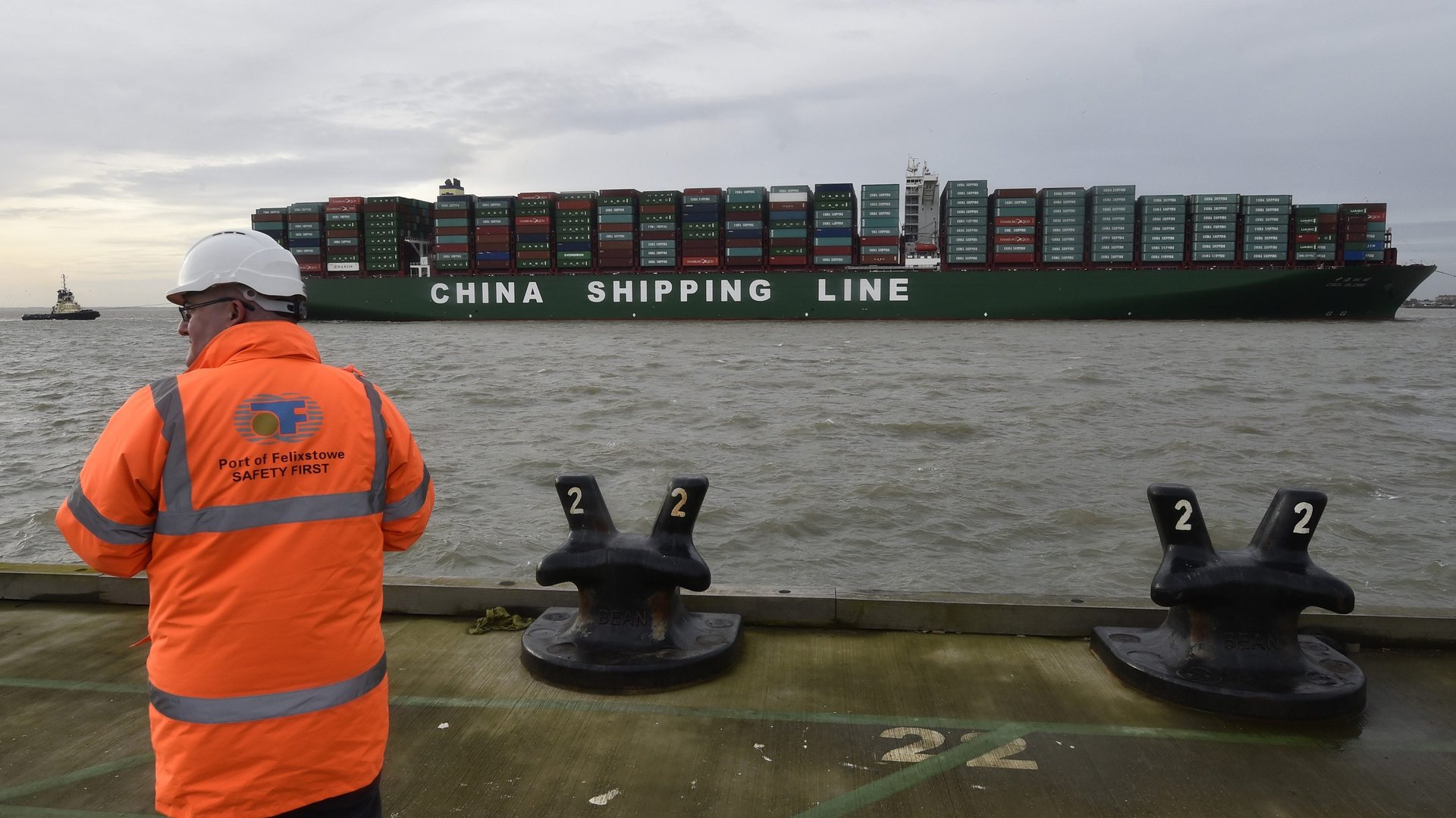Britain’s economic slowdown shows it needs China’s market
The UK economy grew at a slower-than-expected pace in September, according to official data posted yesterday (Nov. 12). GDP grew by 1.1% in September from August, below the levels seen in other EU countries (paywall) like France and Germany.


The UK economy grew at a slower-than-expected pace in September, according to official data posted yesterday (Nov. 12). GDP grew by 1.1% in September from August, below the levels seen in other EU countries (paywall) like France and Germany.
GDP grew by an unprecedented 15.5% between July and September compared to the previous quarter, when UK businesses reopened after a months-long national lockdown. But it wasn’t enough to make up for the losses sustained during the lockdown and the broader global recession tied to Covid-19. (September’s GDP figure is 8.2% lower than it was in February 2020.) And as the UK faces a second extended lockdown and the Dec. 31 Brexit deadline, economists expect things to get worse.
Trade is central to the UK economy: According to the World Bank, exports of goods and services accounted for 31.5% of the country’s GDP in 2019. That’s why new trade data released yesterday are also important to understand the full picture of the UK economy. They show that China, the UK’s third largest export partner, remains a crucial market for UK goods, from cars and other transport equipment to food and livestock. Against the backdrop of a decreasing trade surplus and a broader economic slowdown, the UK exported £1.6 billion worth of goods to China in September. That’s 5.4% less than the previous month, but it’s a solid recovery from a low of £920 million in May.
This crystallizes a trend in which China is taking a growing share of the UK’s non-EU trade: In 2019, the UK exported £25.1 billion worth of goods to China. This trend is likely to continue because China’s economy is recovering faster than the rest of the world, both on the demand and the supply side.